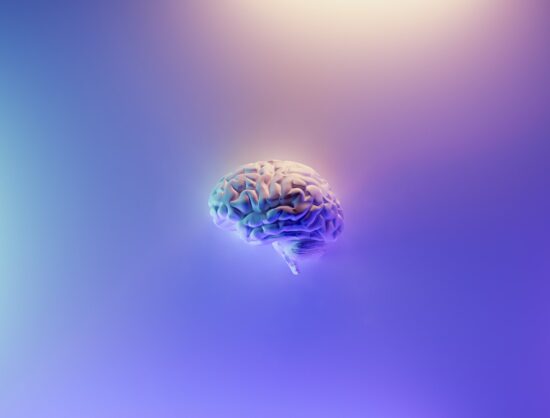Do you ever feel like your brain is running on empty? Hydrating your brain can help you think more clearly and improve your overall mood. According to a new study, dehydration not only physically harms people. It may also result in cognitive deterioration.
Table Of Contents
−- How Long Does It Take To Hydrate Your Brain?
- The Effects of Dehydration on Brain Function
- Why do Animals Stop Drinking Water So Quickly
- How Much Water Should You Drink?
- The “8×8 Rule” for Optimal Hydration
- How Can You Tell When You Should Stop Drinking Water?
- The Balance of Elements Needed for Optimal Brain Function
- How to Pace Yourself When Rehydrating
- 8. Swelling of the Brain with Over-hydration
- The Role of Electrolytes in Hydrating the Brain
- 10. Tips for Staying Hydrated and Keeping Your Brain Functioning Optimal
In this blog post, we’ll discuss how long it takes to hydrate your brain and the benefits that come with it. Read on to learn more!

How Long Does It Take To Hydrate Your Brain?
It takes about 10 to 15 minutes for the body to hydrate the brain, depending on how much water is consumed. To ensure adequate hydration and optimal brain functioning, it is recommended to follow the “8×8 rule” as in eight glasses of eight ounces of water every day.
Furthermore, even mild dehydration, such as the loss of 1-3% of body weight, can impair cognitive function. Thus, it is important to keep the body hydrated and replenish it with fluids and electrolytes to prevent dehydration and its effects on the brain.
The Effects of Dehydration on Brain Function
It is no secret that dehydration can be detrimental to your health. But did you know that it can also significantly impact your brain? Studies show that even mild dehydration can decrease cognitive function, including attention, memory, vigilance, and reaction time.
A meta-analysis of 33 trials, including 413 individuals, found that dehydration of more than 2% of body mass (e.g., 3 lbs. of fluid loss in a 150 lb. person) was related to severe deficits in attention, executive function, and motor coordination.
In extreme cases, dehydration can lead to brain swelling, which can be dangerous and require hospitalization.
Fortunately, the effects of dehydration on the brain can be reversed by rehydrating the body with fluids and electrolytes.
But how do you know when to start drinking more water? And how much should you drink to ensure optimal hydration? Read on to learn more about the effects of dehydration on the brain and how to stay hydrated.
Why do Animals Stop Drinking Water So Quickly
Hydration and brain function are closely intertwined. But why do animals stop drinking water so quickly? It turns out that the brain has a system in place to alert the body when it is time to stop drinking. A study found that thirsty mice had a large surge in dopamine levels after drinking either water or saline and that these dopamine levels dropped off quickly when the mice stopped drinking.
This suggests that the brain monitors the body’s water content and signals to the animals when it is time to stop drinking. This allows animals to hydrate quickly and efficiently without drinking more than necessary.
How Much Water Should You Drink?
When it comes to hydration, the 8×8 rule is a good start. However, it’s important to remember that this rule isn’t a one-size-fits-all solution. The amount of water you should be drinking daily depends on your weight, height, physical activity, and what type of diet you follow.
Do you eat many salty foods or load up on fruits and vegetables? All of these factors can affect the level of hydration your body needs. Depending on your lifestyle, you may need more or less than 8 glasses per day.
If you’re struggling to hit the 8×8 mark, there are other ways to increase your water intake. For example, you could try increasing your hydration with oral rehydration sachets – powders you mix with your water.
These can help replace lost electrolytes and fluids quickly and efficiently. Additionally, if you’re an athlete or have other physical activities, you may need to drink more water than someone who is more sedentary.
Those exposed to extreme temperatures and high altitudes outside are at greater risk of dehydration and should take extra precautions to stay hydrated.
Ultimately, it’s important to remember that drinking water is essential for optimal brain function and overall health – but it’s not the only way to stay hydrated. You can get the same hydration level from various foods and drinks, including fruits, vegetables, and proteins like eggs and yogurt.
So, how much water should you drink daily to ensure your brain is functioning at its best? That depends on your individual needs – so be sure to listen to your body and drink when thirsty!

The “8×8 Rule” for Optimal Hydration
When rehydrating your brain, the “8×8 Rule” is a popular way to gauge how much water you should drink. According to this rule, you should consume eight 8-ounce glasses of water per day. This means that you should be drinking a total of 64 ounces of water each day. This is the amount that most health professionals recommend to stay adequately hydrated.
However, it is important to note that this amount can vary depending on the individual and their activity level. For example, athletes who engage in strenuous exercise may need to drink more than the recommended 64 ounces of water per day.
It is also important to be aware of the effects of overhydration, as drinking too much water can adversely affect your body and brain. When drinking more than 64 ounces of water daily, the brain can swell due to an imbalance of electrolytes.
This can lead to confusion and disorientation and even cause extreme seizures. It is important to remember that maintaining adequate hydration is key for optimal brain health, but it is also important not to over-hydrate, as this can have serious consequences.
How Can You Tell When You Should Stop Drinking Water?
Once you’ve started drinking water, how can you tell when it’s time to stop? The answer lies in your body’s natural response to inadequate hydration: thirst. If you feel thirsty, it’s time to drink more fluids. It’s important to respond to thirst immediately, as mild dehydration can cause a 5% decrease in cognitive function.
Generally, drinking about 20.3 oz (600ml) of water can help quell the effects of mild dehydration in about 45 minutes. If you’re an athlete, the same hydration rules apply. The key takeaway is that you don’t need to drink excessive water – just enough to stay hydrated and keep your cognitive functions running optimally.
To help you maintain a healthy hydration level, try and remember the “8×8 Rule”: drink eight 8-oz glasses of water (or other fluids) per day. And if you’re feeling particularly thirsty, take small sips every 30 minutes. This should help you stay hydrated and keep your brain functioning optimally.
The Balance of Elements Needed for Optimal Brain Function
Understanding the balance of elements needed for optimal brain function is essential. Water is the most important element for our brains, but it is not the only one. Vitamin K, magnesium, and electrolytes are also essential for proper hydration in our bodies and brains.
Vitamin K helps with cognitive function and boosts brain power. Magnesium helps to regulate nerve impulses, and electrolytes help to maintain a balanced pH level in the brain. When these elements are balanced, your brain can perform at its best.
How to Pace Yourself When Rehydrating
It is important to pace yourself when rehydrating, as drinking too much water at once can cause the brain to swell. To prevent this, start by sipping small amounts of water and gradually increasing your intake as your body absorbs more.
You can also add electrolytes to your water, as they help replenish lost minerals from sweat. Electrolyte replacement drinks can be found in many grocery stores and drugstores. It is also important to stay mindful of how much water you are drinking, as too much water can be dangerous for your health.
The “8×8 rule” is a good rule of thumb for optimal hydration: aim for 8 ounces of water 8 times a day for a total of 64 ounces. Finally, if you start to feel the effects of dehydration, such as fever or chills, be sure to take extra care in rehydrating yourself and seek medical attention if necessary.
8. Swelling of the Brain with Over-hydration
When you drink too much water, it can lead to a potentially dangerous condition called overhydration. Overhydration can cause the cells of your brain to swell, leading to a decrease in brain function. In severe cases, water intoxication can cause seizures, brain damage, a coma, and even death. That’s why it’s important to be aware of the signs of overhydration and not drink too much water.
Signs of overhydration include headaches, confusion, nausea, and fatigue. If you experience any of these symptoms after drinking too much water, it is important to seek medical attention. Additionally, if you experience swelling in your extremities (lips, hands, feet), this could also be a sign of overhydration.
It is important to stay hydrated, but it is also important not to overdo it. Pay attention to your body’s needs and ensure you drink enough water throughout the day.
The Role of Electrolytes in Hydrating the Brain
In addition to drinking water, electrolytes play an important role in keeping the brain hydrated. Electrolytes are minerals found in the body which help to balance fluids and acidity levels in the body. Sodium, potassium, and magnesium are some of the most important electrolytes necessary for proper hydration. When we sweat, we lose electrolytes, which can lead to dehydration.
It is important to replace lost electrolytes with water, sports drinks, or other electrolyte-rich beverages. If you exercise for longer than an hour, it is important to replenish lost electrolytes with a balanced sports drink. This will help ensure that you stay properly hydrated and your brain is well-nourished.
10. Tips for Staying Hydrated and Keeping Your Brain Functioning Optimal
It is important to stay hydrated to keep your brain functioning optimally. Here are some tips to help you stay on top of your hydration:
- Carry a water bottle with you wherever you go. This will help ensure easy access to water throughout the day.
- Challenge yourself to keep track of your water intake for a few days to get an idea of how much you should drink.
- Listen to your body and pay attention to signs like thirst or fatigue that may indicate that you need to drink more water.
- Eat foods high in water, such as cucumbers and watermelons, to help keep your body hydrated.
- Avoid sugary drinks as they can interfere with your body’s ability to absorb water.
6. If you are exercising, drink more water than usual, as sweat can quickly lead to dehydration.
7. Make an effort to drink at least 8 glasses of water daily for optimal hydration.
Following these tips can help ensure that your body and brain remain properly hydrated and functioning optimally.

Jay
Jay is a health and wellness enthusiast with expertise in water quality and nutrition. As a knowledgeable advocate for holistic well-being, Jay successfully manages Type 2 Diabetes through informed lifestyle choices. Committed to sharing reliable and authoritative insights, Jay combines firsthand experience with a passion for enhancing health."

